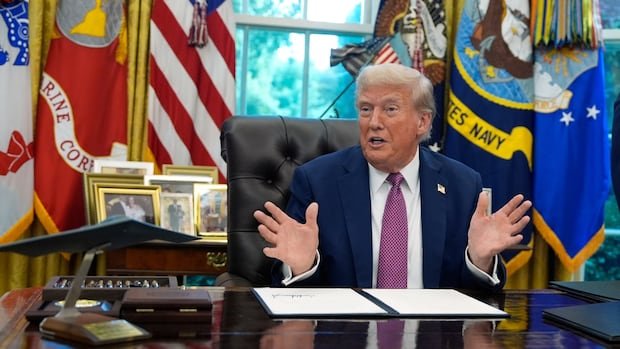U.S. President Donald Trump faced a series of legal defeats recently as his administration challenged the boundaries of presidential authority. Despite encountering six setbacks within a week, the administration is moving forward with its plans, noting that these rulings are not final. The significant case involving broad tariffs imposed by Trump on various trading partners was overturned by the U.S. Court of Appeals for the Federal Circuit on August 29. Additionally, subsequent court decisions ruled against the administration in various matters:
– On Sunday, a federal judge halted the deportation of nearly 700 unaccompanied migrant children to Guatemala.
– On Tuesday, a federal judge in California determined that sending the military to combat crime in Los Angeles was unlawful.
– On Wednesday, a federal judge in Boston found freezing Harvard University’s research funding to be illegal.
– Also on Wednesday, a federal appeals court ruled against Trump’s use of the Alien Enemies Act for expedited deportations.
– Furthermore, a federal judge in Washington blocked the administration from cutting $12 billion in foreign aid funds approved by Congress.
The White House has appealed the tariffs ruling to the U.S. Supreme Court, while the deportation halt remains temporary pending further legal proceedings. Legal experts anticipate the administration will appeal the other rulings as well.
Peter Larsen, a law professor, expressed confidence that the Supreme Court may favor the administration in these cases. He suggested that despite lower court disagreements, the administration expects a favorable outcome from the Supreme Court, citing the court’s history of interpreting presidential powers expansively.
Regarding the tariffs case, it involves levies imposed on imports from Canada and Mexico, as well as tariffs on multiple countries initiated by Trump under the International Emergency Economic Powers Act. While the administration is optimistic about the Supreme Court ruling in their favor, legal experts like Scott R. Anderson from Columbia Law School are unsure about the outcome due to complex legal considerations.
The ongoing legal battles reflect the need for higher court guidance, with uncertainties surrounding the presidential authority to allocate funds approved by Congress. The administration’s response to these legal challenges remains to be seen, with potential shifts in tactics and continued legal contestation expected. Despite pushback on certain rulings, the administration appears resolute in pursuing its agenda.

